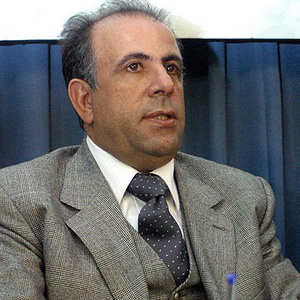Iran’s War Crime Bill as a Symbolic Gesture

Passing the war crime bill is merely a symbolic gesture since after being approved the bill must be delivered to Interpol to examine its validity. Prosecuting war crimes is a difficult and time-consuming task.
Sunday night the Iranian cabinet held a meeting chaired by President Mahmoud Ahmadinejad and introduced a bill on war crimes. The procedure of tracking down and prosecuting those who have committed war crime or issued orders for it has been formulated in this bill. Seemingly the bill is a response to crimes committed by global powers and Israel against humanity, particularly Palestinian Muslims.
On the other hand, in fear of its army members being sued in foreign courts, the Israeli government is trying to pass a bill to defend army soldiers and officers.
Iranian Diplomacy has interviewed Dr. Yousef Molayee, university professor and international law expert:
What is your analysis of government’s introducing a bill to?
Some countries have extended their jurisdiction to judge crimes against humanity –and to a much lower extent, war crimes. However, there are preconditions to activation of this process. First of all, the one who has suffered the crime [the likely plaintiff] should be a citizen or subject of that country.
Also, the country which is going to consider the case and try the anti-humanity or war crimes should be a democratic country with internationally-accepted laws. These are the qualities that a country should possess to prosecute anti-humanity of war crimes.
The only case up to now has been Belgium taking efforts to try former Congolese foreign minister; however, International Court of Justice (ICJ) ordered Belgian courts to cancel his arrest warrant. Therefore, hearing war crimes is not that easy and depends on various parameters.
So passing the bill by the government is merely a symbolic gesture?
Exactly. After being approved the bill must be delivered to Interpol to examine its validity. Prosecuting war crimes is a difficult and time-consuming task. The bill is symbolic, but the problem here is that if Iran shows determination in implementing the bill, there are some individuals and countries ready to use it against Iran.
Does the bill create problems between Iran and other countries?
Yes. There are many immigrant Iranians that claim human rights abuse in Iran. The bill may backfire.
The bill includes launching military offensives, killing civilians, using WMDs, laying a siege to civilians and military and imposing food shortage as war crimes while in international law war crime is defined as any violation of norms and rules of military operations. What is your opinion?
If content of the bill is at odds with international law, it won’t be considered valid by international sources. This means that other countries won’t cooperate in case of need. If an Israeli once travels to Iran and the conditions mentioned in the bill were true for him, Iran’s judiciary can prosecute this person. But no action can be carried out abroad, just like any other law enforced inside the country. But it seems that the Iranian government also wants to have international jurisdiction.

